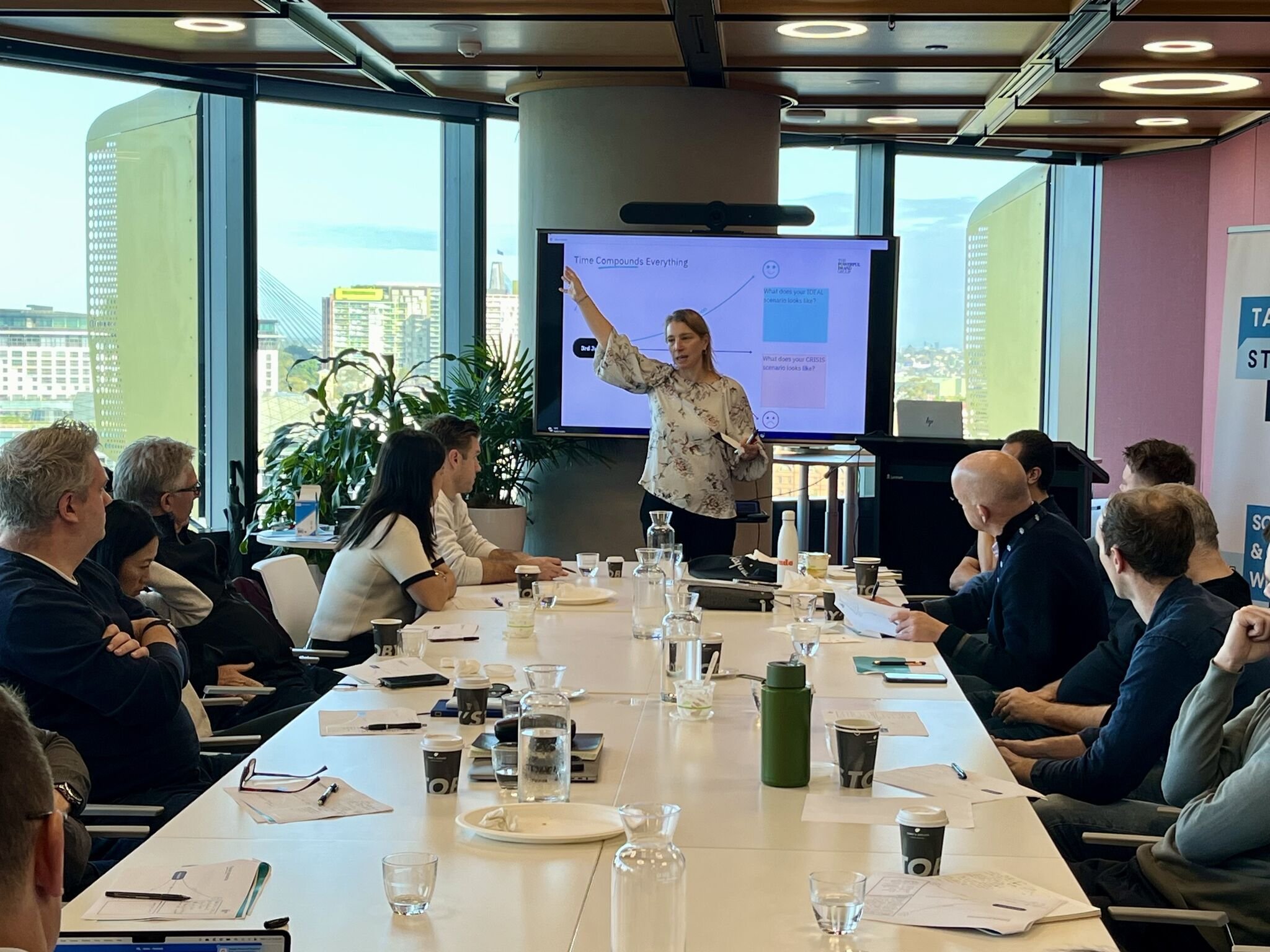Insights from the CEO & Founder’s Roundtable: What Scale-Up Leaders Need to Know
I had the pleasure of joining an incredible group of Founders, CEOs, and business leaders at the start of July at the CEO and Founder’s Roundtable, co-hosted by Tank Stream Labs. It was inspiring to see such an engaged group of leaders sharing ideas and discussing what it takes to scale businesses successfully.
Real Conversations, Real Strategies: Key Takeaways for Scale-Up Leaders
We explored key insights on what it truly takes to scale up, from defining scale-ups and aligning teams, to navigating the shift from start-up mentality to building sustainable processes. The conversations were rich with actionable takeaways, including the importance of trusting your team and cultivating a culture that thrives beyond the founder’s vision.
Here are some of the key takeaways that stood out:
1. What Defines a Scale-Up?
One of the main points of discussion was the difference between start-ups and scale-ups. According to the Organisation for Economic Cooperation and Development (OECD), a business is considered a scale-up when it has achieved an annualised growth rate of over 20% for three consecutive years, starting with a minimum of 10 employees. This definition sets a clear benchmark for companies transitioning from start-up mode to a more established phase of accelerated growth.
Key Takeaway: Many founders are so focused on immediate challenges that they don’t stop to recognise this transition. Understanding when you have officially "scaled up" is critical, as it requires a different approach to leadership, culture, and strategy.
2. The Need for Clarity
Founders at the roundtable highlighted the ongoing challenge of ensuring clarity across the entire organisation. In a fast-growing company, it’s essential that every employee understands the vision, direction, and goals of the business. As companies scale, leaders must communicate these elements consistently and ensure everyone is aligned.
Key Takeaway: Without clarity, even the most talented teams can end up pulling in different directions. Regular communication of goals, strategic updates, and cultural alignment are essential for maintaining focus and purpose as a company grows.
3. Leadership Alignment
One of the most pressing challenges discussed was leadership alignment. While workshops and leadership training are common, they are often treated as outputs rather than focusing on the outcome: getting leadership teams fully aligned on company priorities. Leaders asked, "How can we ensure that our leadership team, and everyone in the organisation, is pulling in the same direction?"
Key Takeaway: Leadership alignment isn’t just about agreeing on high-level goals—it's about ensuring that every leader within the organisation knows their role in executing that vision and can translate that to their teams. This level of alignment creates a powerful, cohesive force that drives the business forward.
4. Ownership and Commitment
Scale-up leaders often face the challenge of getting their teams to feel as invested in the business as they are. This desire for ownership is about ensuring that team members not only understand the broader mission but also feel a sense of personal accountability for their roles and contributions.
Key Takeaway: Ownership stems from giving employees autonomy over their work while reinforcing how their individual contributions feed into the company's overall success. Leaders need to create an environment where every team member is as committed to the mission as the founders are.
5. The Scale-Up Ecosystem in Australia
According to a report from Mind the Bridge, Australia’s scale-up ecosystem has experienced a decade of organic growth, with 1,299 scale-ups raising $28.5 billion in funding by 2023. This remarkable statistic underscores the vibrant, rapidly evolving nature of the Australian entrepreneurial landscape.
Key Takeaway: The scale-up phase comes with its own set of challenges, different from the start-up phase. Founders who want to succeed must recognise the need for a shift in approach—embracing more proactive strategies, well-defined processes, and a culture that evolves beyond the founder’s original vision.
6. What Got You Here Won’t Get You There
A major theme that emerged during the roundtable was the idea that the strategies and practices that helped a company grow initially may not be the same ones that will sustain growth in the long run. As one participant stated, "What brought us here won’t take us there." Leaders must embrace new ways of thinking, hire smarter people in areas beyond their expertise, and adopt more sophisticated approaches to scaling their businesses.
Key Takeaway: Leaders of scale-up businesses must let go of old habits and empower their teams to take on more responsibility. It's crucial to build a strong culture that goes beyond the founder’s control, allowing the organisation to continue thriving even as the company grows.
Final Thoughts: Sustainable Business Success
Ultimately, the discussions at the roundtable revealed that what most scale-up leaders truly want isn’t just growth—it’s transformation. The key outcomes that drive this transformation are clarity, alignment, and ownership. When these three elements come together, they create sustainable business success—enabling companies to scale effectively while maintaining their core vision and values.
For more insights see my reflections from 2024, were I share the key take outs form The Founders Retreat, a three-day, two-night curated business event for Founders and CEOs that took place in The Hunter Valley on December 2024.



